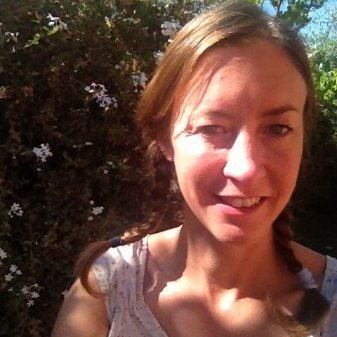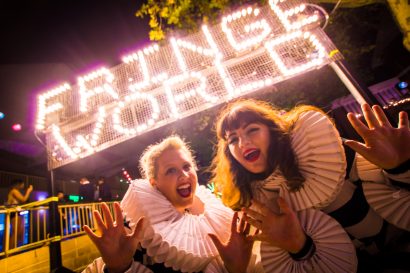Conductor, violist and digital engineer Aaron Wyatt has plenty of strings to his bow. But building awareness of Indigenous music is what gets him most excited. Varnya Bromilow talks to him ahead of the WA premiere of Eumeralla Requiem.
Bringing First Nations’ history to light
19 September 2022
- Reading time • 8 minutesMusic
More like this
- Rewriting tradition with skill and charm
- Close encounter stirs the soul
- The great unknown
When I think about how much my kids have learned about Noongar culture and Aboriginal history over their schooling, it’s tempting to think we’ve come a long way. And sure, compared to my education in the 1980s, much less their grandparents’, they know a lot more about the history of our First Nations than we ever did.
But it’s vital to understand that this is a heavily sanitised, redacted version. The brutal truth remains largely unknown.
A case in point: Have you ever heard of the Eumeralla Wars? I was familiar with the Pinjarra Massacre and other conflicts between Australia’s First Nations people and the colonists, but I’m ashamed to admit that I had no clue about this hugely significant period of our country’s history. In short, they completely repudiate the myth that First Nations people didn’t fight back against the colonial invaders.
These battles provide the story for Deborah Cheetham’s Eumeralla: A War Requiem for Peace. The moving opus involves four choirs, heartbreaking poetry and a full orchestra. The West Australian Symphony Orchestra will perform the work on 30 September, conducted by Benjamin Northey and assisted by Aaron Wyatt, a Noongar man and musician from Perth.
“I had a vague idea of these conflicts, growing up as a kid,” Wyatt explains on the phone from Melbourne, where he is now based. “But it was definitely not taught in schools. I remember with the Centenary of Federation there was this line, ‘a nation created with a vote not a war’, which is pretty, um, interesting. There is a lot more awareness now, but there’s still a way to go.”

Wyatt first worked with Cheetham, the founding director of Short Black Opera, for the One Day in January project, which brought First Nations musicians and composers together to play each other’s work.
“A friend heard her on Classic FM, putting a call out for classical Indigenous musicians. So, I contacted her and that’s how our collaboration started.”
These days Cheetham and Wyatt are colleagues at the Sir Zelman Cowen School of Music and Performance at Monash University in Melbourne.
“We’ve worked really hard to ensure there’s more Indigenous content and involvement in the music program,” Wyatt says. “More than just your traditional Western concepts of what Indigenous music is … it’s all kinds of music. One Day reflects that – musicians from all kinds of genres contributing, it’s really grown.”
Wyatt’s training was initially in violin, before turning to the viola. “I became a violist basically because we had this quartet when I was in the WA Youth Orchestra (WAYO) and we couldn’t find a violist!” He laughs.
WAYO was just one part of a rich musical life in Perth. “I was very lucky in Perth … I just met the right people and always had these great opportunities,” he says.
“There was Spooky Men of the West, Southside Symphony, all these projects. And then I joined Decibel in 2011 on the violin and I’m still playing with them now. The calibre of music in Perth is very high, the only issue is that smaller projects tend not to survive, so there’s not as much choice. That’s why I eventually relocated to Melbourne.”
Decibel, led by WA’s Cat Hope, is now co-located in Perth and Melbourne. The group’s groundbreaking, contemporary works provided the impetus for another of Wyatt’s many projects, the Decibel Scoreplayer App.

“This is a variation of graphic notation which has been around since the 1950s,” he says. “Instead of your usual notes and bars and whatever, you play according to signs and symbols on the score. In animated graphic notation, the image is moving as the music plays.
“It’s a particularly good way of showing music that doesn’t rely on traditional rhythms, like a lot of what Decibel does. So, apart from music, I have this electronic engineering background and interest in coding and programming. We started developing the app as a team but these days I’m the sole developer.”
With app development, conducting and playing the viola in a variety of ensembles, one gets the sense that Wyatt’s star is definitely rising. He was even a guest on Spicks and Specks recently. So, what’s next?
“It’s busy,” he laughs. “I’m really excited about some collaborations coming up with the Melbourne Symphony Orchestra. I love the idea of expanding the idea of what Indigenous culture is. For NAIDOC this year we had a collaboration with Electric Fields, songs in language, all sort of things. It’s a really exciting time. No more pigeon-holing.
“And I’m really keen to get back to Perth for the work with Deborah. Being an assistant conductor mostly means sitting in the wings, listening. But it’s a great opportunity and means that one day I may be able to conduct Eumeralla myself.”
But it’s not only the momentum of his career that has Wyatt excited; the change of government is also making him hopeful.
“I guess you’d say I’m cautiously optimistic,” Wyatt says. “People wanted a change, not just in terms of Indigenous rights, but also climate change, investment in the arts. It was all overdue. So, yeah, things are looking up. It’s definitely an exciting time.”
Pictured top: Aaron Wyatt became a violist because the quartet needed one. Photo: Luke Hennebry
Like what you're reading? Support Seesaw.






